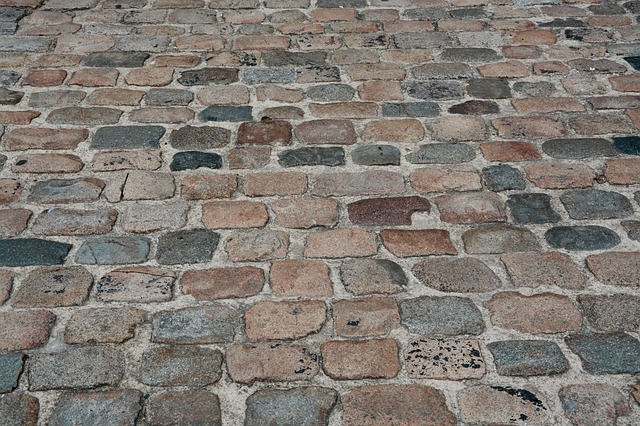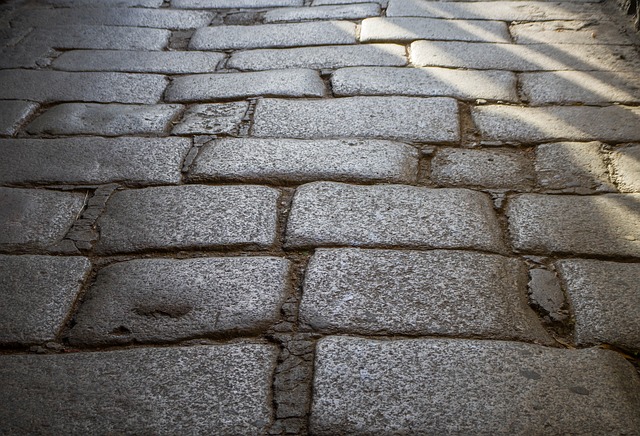Walkways and driveways can make or break a landscape. While a poured concrete walkway has a lower upfront cost, pavers also have their own advantages. Pavers add beauty and curb appeal, do not need intricate concrete hauling and finishing, and have a strong foundation like crush concrete. Pavers, especially driveway types, support substantial weight for a long time, which is why they should be thick and installed properly. But how thick should driveway pavers be?

How Thick Should Driveway Pavers Be?
Installing pavers with the right thickness is vital in preventing cracks and other damages. If you are not aware of how thick pavers should be, check it out below.
What Are Pavers?
An outstanding choice for a visually pleasing patio or driveway, pavers are made of paving stones, bricks, or brick-like pieces of concrete. They are typically used as outdoor flooring. Aside from aesthetics, they are also known for their durability.
What is the Ideal Thickness of Pavers?
The average thickness of pavers to be installed in most driveways and gardens is 2 and 3/8 inches (paver block thickness in mm = 60.325). Some factors should also be considered; one of these is the base, which is the area beneath the pavers. For instance, you have a pave base if the base is an excavated soil site with crushed concrete and sand. If this is the case, you need pavers that are 2 inches thick at a minimum for effective weight distribution of your garage door’s weight and damage prevention.
Applying thinner pavers just to save some dollars usually results in cracks, creating space for weeds to grow through and eventually populating the walkway.
How Thick Should Paver Base Be?
Aside from the pavers, the crushed concrete base and bedding sand should also be of proper thickness. These are some of the basics of building a house if you want to get it installed properly before you move in. Generally, good bases are four to six inches thick.
Properly installing the base provides a firm area for paver installation. This can be done through time as a weekend home improvement project if you’d like as well. If the base was not compacted or leveled correctly, it can lead to ground contours appearing at the surface level of the pavers. Even if you use the right paver thickness, cracks can quickly surface if the base is not firm and solid.
To prepare the base, follow the instructions below:
- Start by leveling the ground.
- Once leveled, spread a two-inch layer of crushed concrete across the area.
- Get a plate compactor for vibrating the multi-sized pieces of the crushed concrete. This will secure the pieces into place.
- Put in another two-inch layer of crushed concrete, then compact again using the plate compactor.
- Cover the crushed concrete with a one-inch layer of bedding sand.
Applying the Pavers
The pavers will directly come in contact with the bedding sand. To install the pavers, follow the instructions below:
- Lay the pavers on the sand.
- Using the plate compactor, vibrate and compact them to secure them in position.
- Sweep more sand into the cracks between the pavers, then vibrate them once again using the compactor. Sand between the cracks or joints will keep the pavers from rubbing against one another, thereby creating a properly leveled surface and a permanent, firm walkway appearance!
Thin Pavers vs Thick Pavers
Pavers that are typically just one to one and one-fourth inch thick can also be utilized, but you will need a concrete base that is made of concrete slab instead of crushed concrete. For instance, you can use an old concrete patio as your solid base before applying the bedding sand and pavers.
Further, with thin pavers, there is no need to take out the original poured concrete for the pavers to fit into place, as weight is already distributed across the pavers and concrete slab below. This will considerably reduce the appearance of cracks and damages.
FAQ’s
Do Pavers Make a Good Driveway?
Yes. Concrete pavers are one of the best materials to use for a driveway. Aside from their small size making them easy to handle, they also do not require the use of heavy machines for installation. Moreover, pavers that are used specifically for driveways are typically interlocking, which makes the installation process faster and strengthens the paver surface.
Is it Cheaper to Lay Concrete or Pavers?
At installation, poured concrete generally has a lower cost compared to pavers. However, pavers have a lower maintenance cost. So over time, a poured concrete driveway can potentially be more pricey than pavers.
Bottom Line
How thick should driveway pavers be? This depends on several factors, such as the base on which the pavers will be laid out. Generally, the ideal paver thickness is 2 and 3/8 inches, while the base is four to six inches. Using the right thickness of pavers and base and installing them properly is critical in creating driveway pavers that last and stand the test of time. If you have no choice but to use thinner pavers, make sure to use concrete slab as the base.
